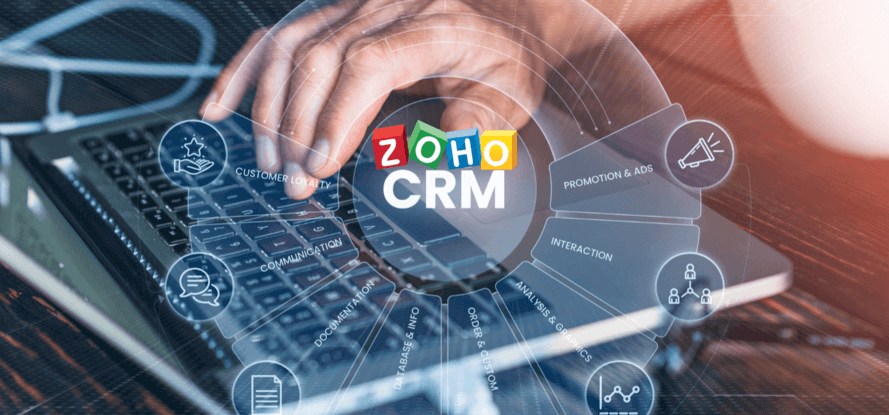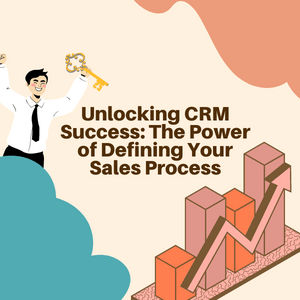In today’s fast-paced business world, small businesses in the US are discovering the game-changing benefits of Customer Relationship Management (CRM) systems. These tools aren’t just software; they’re secret weapons that help streamline operations, enrich customer relationships, and pave the way for remarkable success. This article dives into the vital role of CRM for small businesses, breaking down key aspects, highlighting the perks, and emphasizing why a smooth CRM integration is essential for long-term growth.
Do I Need a CRM if I Have a Website?
In today’s digital era, having a website is crucial for any business. But simply having a website isn’t the whole story. Small businesses can take it up a notch by using CRM (Customer Relationship Management) systems. These tools work hand-in-hand with your website, creating a central hub for customer data. With CRM, you can keep tabs on how visitors interact with your site and build personalized connections with your audience. It’s like turning website visits into meaningful relationships effortlessly.
The Essentials: CRM for Small Companies
How to Track Sales for Small Business
For small businesses, tracking sales is paramount. CRM software for small businesses offers a user-friendly interface that allows you to monitor sales activities, identify trends, and make informed decisions. It transforms the sales process, making it more efficient and data-driven.
Keeping Track of Sales in Small Business
Efficiently managing sales data can be challenging for small businesses. CRM simplifies this by providing a centralized database that records customer interactions, purchase history, and preferences. This not only facilitates better sales forecasting but also ensures a more personalized approach, fostering customer loyalty.
- Boosts efficiency
- Enhances customer relationships
- Supports data-driven decision-making
- Learning curve during implementation
- Data Centralization for Customers. CRM brings together all customer information into a single repository, providing easy access to stakeholders. It automates tasks, optimizes workflows, and improves efficiency. In businesses with multiple departments, this centralization ensures everyone is on the same page, leading to better customer service.
- Increased Customer Retention. After acquiring and converting leads, small businesses must focus on customer retention. CRM provides insights into customer behavior, automates support processes, and encourages repeat business. The result is enhanced customer loyalty, mitigating the negative effects of high customer turnover.
- Break-Free Communication. CRM stores communication history, facilitating seamless transitions when team members change. The comprehensive view of communication ensures that clients receive consistent service, even when interacting with different team members.
- Make Smart, Data-Driven Decisions. CRM platforms offer data analytics tools that unlock insights invisible to the naked eye. From customer satisfaction to sales performance, businesses can measure, analyze, and make data-driven decisions. Dashboards organize data for targeted marketing campaigns and improved forecasting.
- Social Media Engagement. Social CRM tools help businesses leverage social media for stronger customer relationships. Tracking hashtags, managing reviews, and maintaining a consistent brand voice across platforms become more accessible with CRM integration.
- Automate the Boring Stuff. CRM automation saves time and reduces errors. Tasks like personalized email campaigns, lead qualification, assignment of sales reps, and management of service tickets become streamlined, allowing teams to focus on core activities.
- A Centralized Database. CRM software keeps track of all customer information in a central database. This ensures easy access for sales representatives, informs future marketing efforts, and provides customers with a satisfying, personalized experience.
- Sales Forecasts and Profitability Tracking. CRM systems empower businesses to review past performance, forecast future trends, and adjust goals based on projections. The automation of sales reports aids in precise sales forecasts, while profitability tracking benefits financial departments.
- Precise Customer Segmentation. Customer segmentation is enhanced through CRM, allowing businesses to divide customers based on demographics. This targeted approach facilitates more effective marketing practices.
The Landscape of CRM Software for Small Business in the USA
Choosing the right CRM software is crucial for any businesses. It’s not just about functionality; it’s also about affordability. Small businesses often require cost-effective solutions, and fortunately, there are cheap CRMs for small businesses options designed specifically for their needs. These solutions offer a spectrum of features without breaking the bank, making CRM accessible to businesses of all sizes.
Pros and Cons of CRM
Before jumping into using CRM, let’s weigh the pros and cons.
Pros:
Cons:
But here’s the key – the advantages significantly outweigh the drawbacks, especially when you think about the long-term growth and profitability of your business.
Easy to Use CRM for Small Business
Recognizing that small businesses often lack extensive resources for training, an easy-to-use CRM becomes essential. Modern CRM solutions with user-friendly interfaces empower small businesses to harness the full potential of CRM without extensive training or dedicated IT support.
Benefits of CRM for Small Business

The Role of Zoho CRM in Small Business Success
In the realm of CRM, Zoho stands out as a comprehensive and user-friendly solution. Small businesses looking to implement CRM can benefit significantly from Zoho’s features, including data centralization, automation, and detailed analytics. Zoho’s affordability and scalability make it an ideal choice for small businesses seeking to thrive in a data-driven business landscape.
Thriving with CRM
In conclusion, CRM is not just a tool but a strategic asset for small businesses in the US. From centralizing customer data to automating processes and making informed decisions, CRM plays a pivotal role in fostering growth and customer satisfaction. As the business landscape evolves, small businesses can unlock their true potential by embracing CRM, and Zoho stands as a reliable ally in this transformative journey. For small businesses ready to embark on the CRM revolution, Customerization offers expertise in Zoho implementation, ensuring a seamless and tailored integration that propels businesses toward sustained success.
Ready to Transform Your Business? Contact Customerization Today!
Take the first step towards a data-driven, efficient future. Contact Customerization for expert assistance in implementing Zoho CRM tailored to your small business needs. Unlock the power of CRM and propel your business to new heights.

